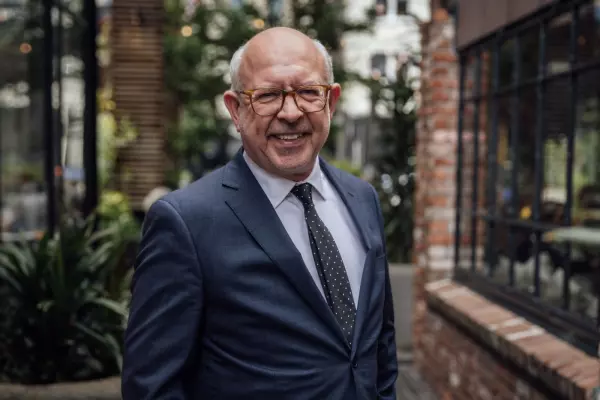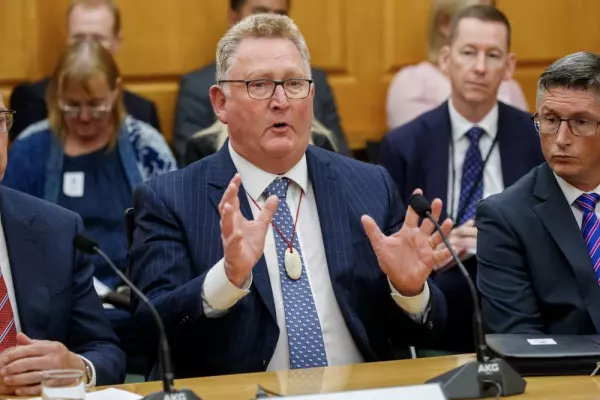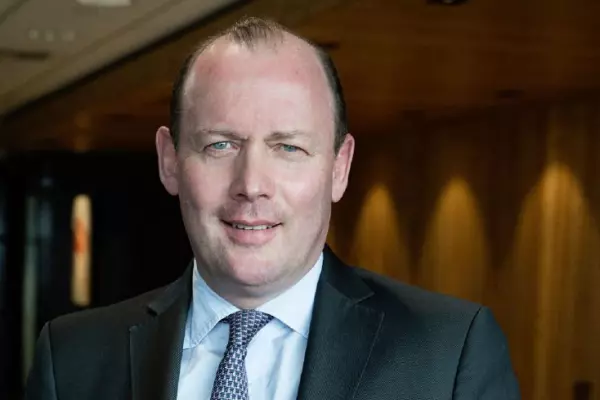BusinessDesk's investment editor, Frances Cook, responds to readers' emails on a weekly basis to answer various questions about money. Below you'll find her expert advice on a subject she's extremely passionate about.
Hello Frances,
There's talk about people needing to talk more about finances, as someone who isn't in finance and accounting and money things, I always say "find a mortgage broker" for people when buying a home or wanting to refinance etc.
Is there some way we (laypeople) are allowed to talk about finances when we aren't financial people?
Thanks!
L
Hi L,
Can I just say, your caution on this point is very refreshing! It’s good to want to do the right thing by your friends and family, especially when it comes to money.
As a recap for other readers, financial advice is regulated in New Zealand (and most other countries). The rules here are that you have to be qualified and registered with the Financial Markets Authority (FMA), to give financial advice. You can check if someone is licenced, for free, by searching them on the Financial Services Providers Register. If you give unregulated financial advice, the penalty can be a $200,000 fine.
However, these regulations are aimed at someone who is giving financial advice such as creating a financial plan, mortgage advice, KiwiSaver or other investments. It’s to stop con artists who would charge you for such advice when they’re not qualified, or frankly, the new breed of hustlers on YouTube giving out investing strategies as if it’s one-size-fits-all.
However, in terms of a chat between friends, you’re very much on the safe side. If you’re talking about your own experiences, what’s worked for you, and what you’re doing, none of that is considered advice, as you’re not telling someone else what to do. You’re just letting them know what worked for you.
If you’re trying to help them figure out what might be the best strategy for them, you can always have a chat about different strategies that you’ve heard about, things that have worked well for other people, or things you’ve seen in the news. Just describing how something like KiwiSaver works also isn’t financial advice. The red line comes when you tell someone else what they should be doing, without the qualification to fully understand their finances, and how to create a plan that’s suited to their life and goals.
As a way to finish up the conversation, your current approach of “find a mortgage broker” is a good one. I don’t see a problem with having a chat about money, what’s worked for you, and what you’ve heard has worked for others, that then finishes by saying “I know a great mortgage broker, they might be able to help you decide if this is a good strategy for you as well”. The key is always appreciating that what works for one person might not work for another, and being respectful of that.
If you need a bit more reassurance, here’s a response straight from the FMA. They also say that you’re currently in the safe zone:
“People should feel comfortable talking about investments and companies on the share markets. We encourage all New Zealanders to take an interest and discuss financial matters, to get more familiar with financial products. It’s encouraging to see the growth of DIY investing has led to the rejuvenation of share clubs.
“The FMA has produced a range of resources and campaigns through various channels to reach the new generation of investors who have joined the market, especially through DIY investment platforms.
“It’s only if you stray into making personal recommendations to somebody about purchasing specific financial products or hold yourself out as providing professional advice when you’re not authorised to do so, that you could get in trouble with the laws around financial advice. Telling someone you’ve had a good experience with a certain company, is not the same as recommending to someone to buy those company shares or purchase that company’s products.”
“This is what our guide to talking about money online says if you want to know more about where the “line” is between a conversation and a piece of regulated financial advice.
“Essentially, it’s fine to talk about financial matters, as long as you keep it general. It’s when the conversation turns to recommending particular products or telling individuals what to do, that people may be giving regulated financial advice, which only financial advisers are allowed to do.
“People can freely share factual information that describes a financial product’s features or terms and conditions. But you can’t make a recommendation on whether an individual should (or should not) take up that product.
“For example, this wouldn’t be regulated financial advice: ‘Rather than trying to pick individual shares, you can put your money into a managed fund that will be able to buy a range of investments.’
“But this would likely cross the line: ‘ABC Finance has a great managed fund that buys shares from around the world, they have low fees, so take your money to them.’”
So basically – go forth, and have fantastic money conversations with your friends. Just don’t tell them exactly which investments to go for, because we are of course all different.
Get more financial information when you listen to the Cooking the Books podcast. Article continues after the podcast.
Hi Frances,
Hope you’ve had a good Easter break! First off want to say, I came across you on TikTok and I love your content!
I would like to get your opinion on whether or not it’s smart to buy a house end of this year/early next year. I know the official cash rate (OCR) was just raised and inflation is ever increasing which my friends say are reasons to not buy a house yet. Mind you, they’re not financial advisors.
To give you context on me: I’m in my early 20s, working in the corporate venture capital space for nearly a year now, and earning 6 figures. I’m currently flatting in the city but would be moving back home mid-year to save up for the house. My parents have also kindly offered to pay some or all of the down payment on the house. I plan to go overseas in 2024 and live for a few years, which is why I want to buy a house so I can have an asset growing here. I also have a 60k student loan. However, with my scholarship, and my company's top-ups on top of my own contribution, I’ll pay it back in 3.5 years. Experts from online sources have speculated that inflation will peak in 2023.
With all of this in mind, would it be smart to be a homeowner by December 2022 with my current standing and the economy's current/future standing?
I thank you in advance for your time and look forward to your reply.
Cheers,
A
Hi A,
You’re in a great position this early in life. Congratulations on securing a job that gives you so many options. Now we just need to figure out – how to make the most of it?
You mention the OCR and inflation, and how they might impact your home-buying plans. As I’m sure you know, the OCR changes interest rates, and with interest rates going up around the world, mortgages are becoming more expensive. Nobody knows the future, but the expectation is that interest rates will just keep going up from here. In the past, interest rates have followed a cycle that takes about 30 years, going up for two or three decades, then down again for another two or three decades. So, unless you’re planning to hold out on buying a house for a decade or two, it’s mostly just something to factor into how much you’re willing to pay.
Meanwhile, inflation is how much prices are rising around us, including housing. This is actually an argument in favour of buying while you can, in my opinion. If house prices are rising, being able to buy means that you lock in a price you’re happy with, and then pay it off over several years. You’re not stuck with rising rents or watching house values rise around you.
So, you have mortgages becoming more expensive thanks to interest rates, but the ability to buy a house and stop inflation from increasing that base cost any further. Those two seem to cancel each other out, to me.
Either way, trying to predict the future on this stuff is extremely hard. In early 2020, when we were all in lockdown in our homes, I was like everyone else trying to get work done from the home office. A lot of my work at that time was hosting webinars, talking live to experts about what the heck was going on with property, the markets, our money in general, and trying to get some good info out there to help people who were panicking.
At that point in time, even the most optimistic of experts agreed that housing was going to go down in value. I heard predictions of anywhere from a 1% price fall, to 12%.
What happened instead? Not only did prices rise, but it was some of the steepest price rises in history.
It’s not that these (numerous) experts were idiots, or did their sums wrong. They gave a good prediction based on the information we had at the time. It’s just that there are so many moving parts, that predicting the future is always difficult.
So, rather than trying to predict the financial future and make a home-buying decision based on that, I think we’re better off looking at your personal plans, and how you would prefer to organise your finances on those.
You say you’re keen to travel. Fantastic idea; while you’re footloose and fancy-free, there really is no better time. Protecting your finances so that you’ve still got a future to come home to is also a really good idea.
If you go overseas, what would you do with the house you’ve bought? A house that makes a good investment property may be quite different from what you want in a home to live in. Would you be comfortable with having someone else living in and renting the house that was your home? Would you be emotionally prepared for it to be damaged? Accidents happen. Sometimes the damage is extensive.
Who would look after it for you? Do you have friends or family who understand property law, and could act as a property manager for you? Would you hire a property manager instead? Would you be willing to stay contactable by email in order to make decisions and sign off on any maintenance that’s needed, even while you're travelling?
Or, of course, would you be prepared to leave it standing empty, and keep paying the mortgage out of your own pocket?
If any of these solutions appeal to you, then great. Buying a house might be a good option for you. If not, then it might not be the right time for you to buy before travelling.
As a side note, I do agree that you should consider putting your money into a growth asset while you’re young. It's good to make the most of that excellent salary you’re earning and make sure that you can travel guilt-free without feeling like you’re sacrificing your future.
Shares and property are the two growth assets that have a proven track record to help you build wealth for the future. So, you could choose to buy a house that you intend from the outset to be an investment property, and have a strategy for how to handle that while you’re overseas. Or, you could start investing in shares. Shares are a more passive investment, which you could simply leave ticking along while you’re out of the country. When you’re back, if you want to, you could cash out some of the shares to use as a house deposit for your new life back home.
It really all depends on the lifestyle you’re after, and what appeals to you as a good fit with your future plans.














